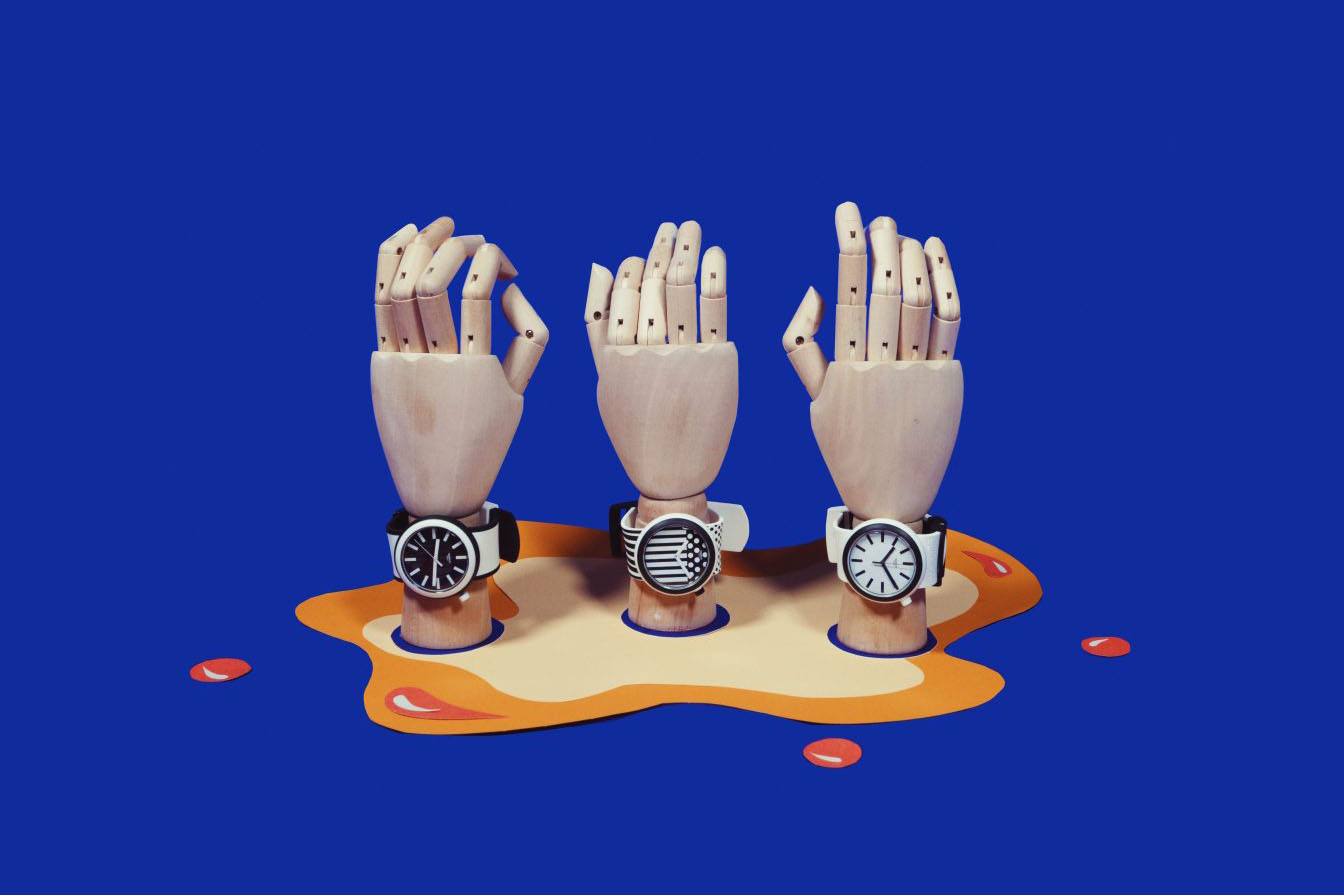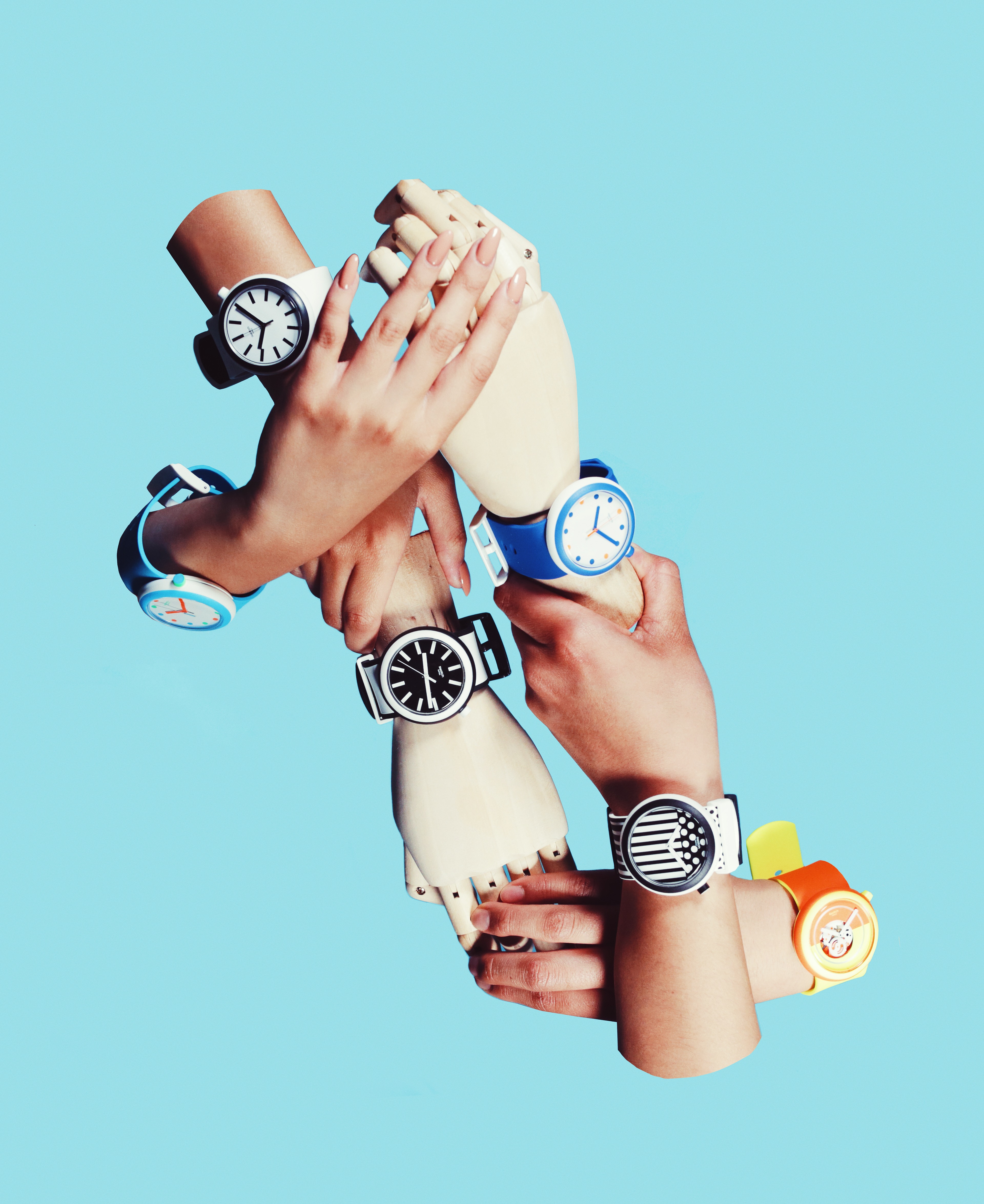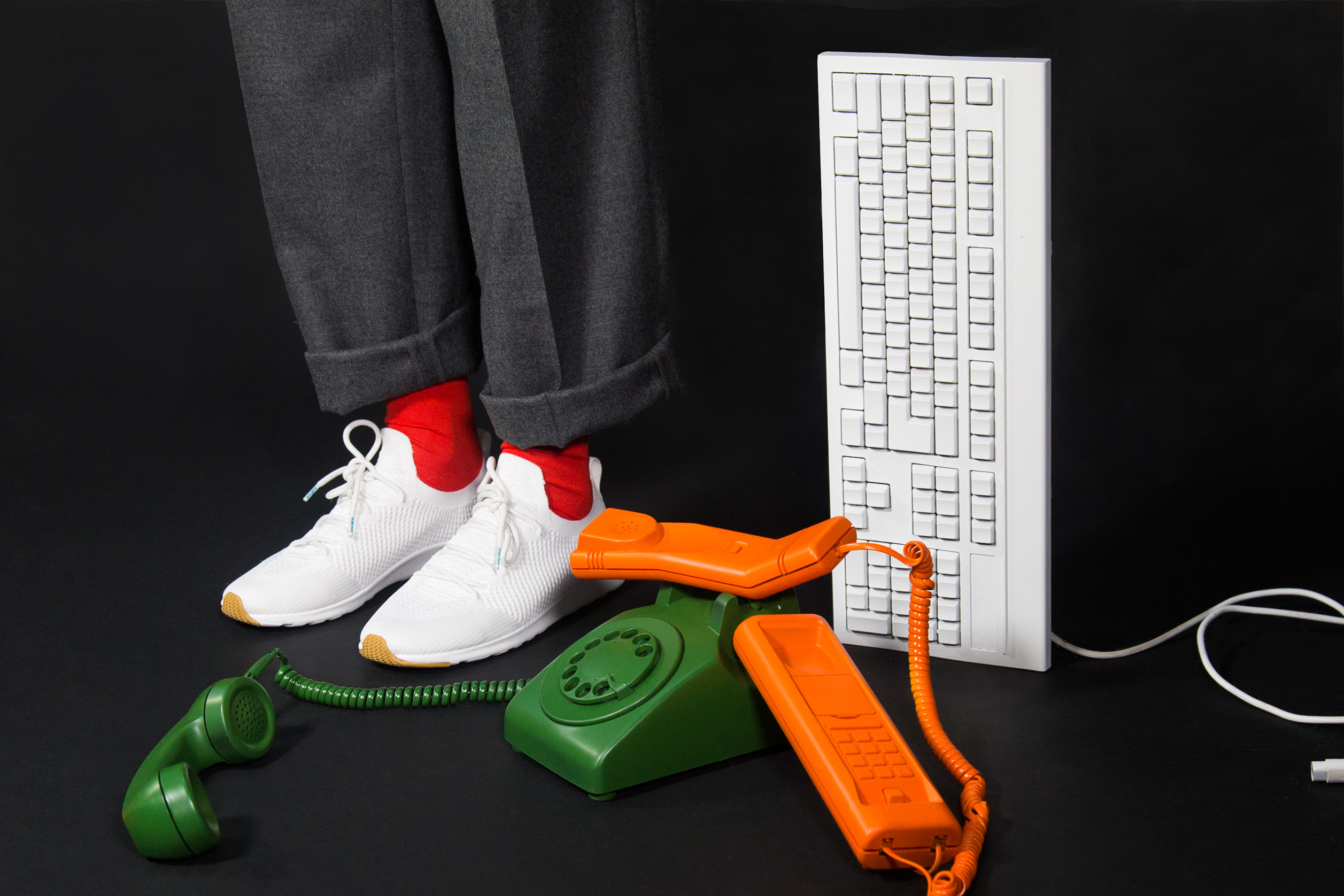Product Styling
Do You Know That Your Body Can Tell Time?

I’ve always been a morning person but my internal clock (or my *internal watch*) has been ON recently. For the past few months without fail, my eyes pop open around 7 am and I am ready to go. Since running on a set sleep schedule, I have noticed a difference in my mental state. I am getting shit DONE. I think that the older I get, the more valuable time is to me; this idea has made me curious as to how our internal clock functions. What’s making this happen? How is my body doing this cool thing? How can I make this last?
 Photos by Ema Walters and Dani Roche
Photos by Ema Walters and Dani Roche
Our brains have a distinct region that is in charge of keeping time. This region is called the suprachiasmatic nucleus (or SCN), nuzzled above the point in the brain where the optic nerves cross. The SCN is responsible for our circadian rhythm, a 24 hour cycle that regulates our daily patterns such as our sleep/wake cycle. Since my life is more organized in general, I’ve noticed that my sleep/wake cycle is regular (like clockwork hehe). I’ve been focused on trying to experience as much as I can in a day (which is why I wake up so early).
We all have the same 24 hours and I wanna use those 24 hours to be a boss bitch, even in my sleep.
When my sleep schedule is off, everything is off. Sleep is extremely important in how our body functions (like taking the time to heal our tissues and cells). Which is why our internal clocks play such a large role in how we feel. People with mood disorders like Depression or Bipolar Disorder have altered circadian rhythms. Not to mention, the circadian rhythm and mental health connection has also been related to diseases like Alzheimer’s and Parkinson’s. Researchers are finding that disrupted circadian rhythms are predictors for the development of mild cognitive impairment.

In order to maintain my circadian rhythm, I get up the same time everyday, even when I don’t HAVE to. That’s right, I don’t sleep in on weekends *gasps* I also have a set morning routine that I actually enjoy following e.g. I like to be able to chill for an hour before I have to go anywhere. Lastly, I’ve stopped sleeping with electronics close to me. The reason being that if you are lying in bed with your cellphone or laptop, the light emitted from the device will promote staying awake. Photoreceptors in our eyes differentiate light and dark, so instead of allowing the dark to signal our circadian rhythm it fools our brains into staying up.

Keeping your body’s sleep cycle in check may be one of the best things you can do for your overall health. Plus, it just feels good! I put a lot of trust in my body to do it’s thing. There is something about relying on my body to wake myself up that I find really satisfying. Think of it this way, Beyonce only has 24 hours in a day and wouldn’t it be nice to accomplish just as much as she does?
Works Cited
Circadian Rhythms Fact Sheet.(2012, November). Retrieved June 4, 2016, https://www.nigms.nih.gov/Education/Pages/Factsheet_CircadianRhythms.aspx
Walton, A. (2012, March 20). Your Body’s Internal Clock and How It Affects Your Overall Health. Retrieved June 4, 2016, http://www.theatlantic.com/health/archive/2012/03/your-bodys-internal-clock-and-how-it-affects-your-overall-health/254518/
Electronics in the Bedroom: Why it’s Necessary to Turn off Before You Tuck in. Retrieved June 4, 2016. https://sleepfoundation.org/ask-the-expert/electronics-the-bedroom

















